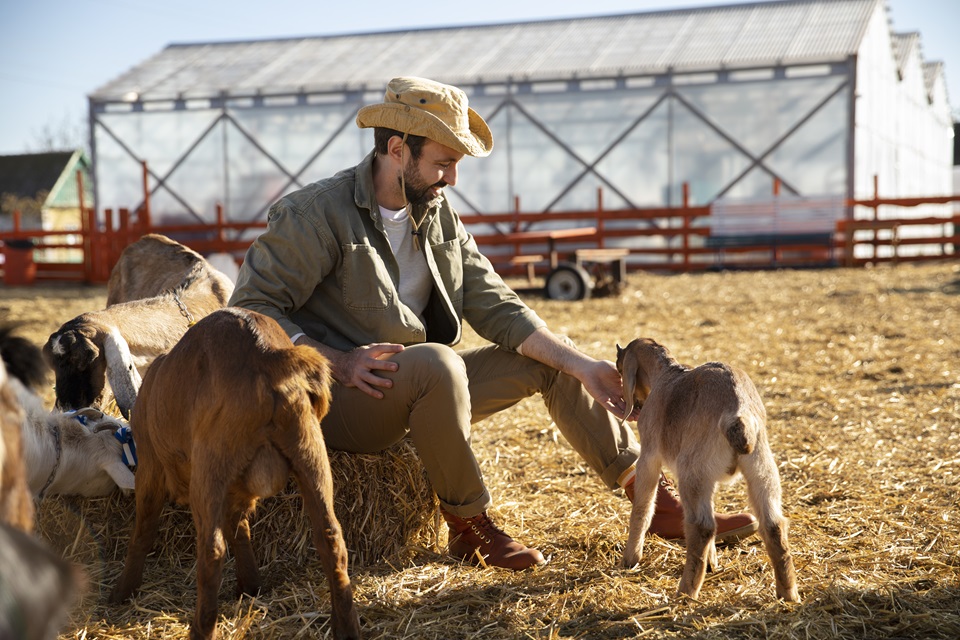Raising animals for use or pleasure is livestock farming in a nutshell. Be it cattle, pigs, sheep, goats, horses, or another type of animal, farming operations depend on several factors, from feeding to caretaking. While every type of livestock will have its own rules and needs to be met, livestock farming, in a more general sense, has much to be done no matter the animal.
Here is your simple guide to livestock farming.
Table of Contents
Selecting The Right Location
Farms live or die based on their location. Nearly one-third of farmland is rented. This may be an option for those unsure about purchasing a farm. Select the right farm location, know the soil type required to grow crops, if there’s adequate water supply, and how close the farm is to its intended market.
Have the right amount of space. Space is critical to livestock care. Animals have different requirements. Chickens only need a few square feet, while cows require acres.
Learn Everything You Can About Your Livestock
Livestock farming can be done for several reasons, like commercial production, showing or breeding stock, or raising livestock as a hobby. Define why you want a livestock farm and what type you want on your property.
To breed livestock, learn everything you can about them. Each species has a unique reproductive characteristic. There are heat periods to take advantage of, particularly, that can expand one’s livestock count.
Build Your Livestock Facilities
Livestock facilities require a building permit to construct. If you must build all-new facilities, it’s important to understand what is needed to keep your livestock fed, hydrated, cared for, and comfortable. A simple addition like a barn curtain can keep cattle, pigs, sheep, or other livestock comfy.
Gather your livestock equipment. As you build out your facilities, depending on your budget, you will discover the wants and needs for all farming equipment. Many of these will have to be budgeted for and planned. Though not all equipment is equally critical, a lot can be done to automate the care of a livestock farm.
Also, create a manure handling system. Livestock produces waste. Fortunately, this waste can be repurposed. Manure is a valuable fertilizer in farming but requires care and storage. Be sure to develop a system to maximize your manure.
Feeding Livestock Requires Careful Scheduling
Feed requirements vary greatly. Animals require protein for rapid growth, reproduction, and production. Energy, vitamins, and minerals are all needed, which can be obtained through grains and supplements. The budget, time, and effort involved in feeding livestock can be quite substantial.
Ensure your livestock has access to clean water. Arguably, watering and hydration are more significant than feeding. Livestock without an adequate water supply are highly likely to suffer. Water should be checked daily to ensure it is clean, fresh, and not contaminated or dirty.
Connect With A Livestock Farm Veterinarian
Keep accurate records. Check on your livestock every day. Make notes. Maintain records of the farm’s financial and production aspects, ensuring your decision-making regarding the animals’ care is fully informed. This also provides insight into how to improve efficiency, financial performance, and other aspects.
Sometimes, you might be dealing with a sickness or illness in livestock requiring a vet’s help. Veterinarians are essential to livestock farming. Connect with one early, ensure your animals are properly maintained and cared for, and, when in doubt, lean on your vet for advice.
Prepare for death losses in farming. Deaths happen. They are inevitable. Equip yourself with the knowledge, planning, and resources to handle dead animals as these incidents occur.
Hiring Others In Livestock Farming
Livestock farming may require additional workers for year-round assistance. However, this varies according to how many family members and friends you have on-site and how many animals there are to care for. Food and vegetable production is more than livestock farming.
Don’t hesitate to find support. Livestock farming in today’s world is filled with newcomers, new immigrants, young people, second-career farmers, and family farmers. Livestock farmers have many resources, from mental health support to answering many questions. When in need, don’t hesitate to seek help.
Profitability Is Your Best Metric
Above all else, a livestock farm must be profitable. As you create your own, you will want to select the most profitable livestock type according to your resources, available space, climate and weather, and other factors.



